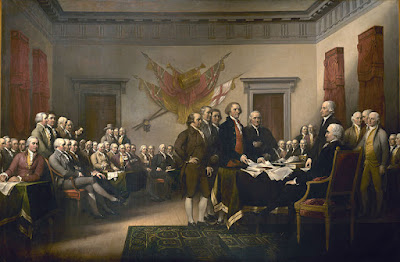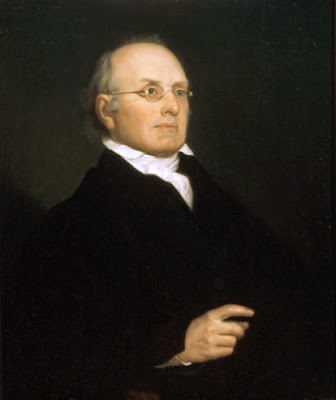“Shall we expect some transatlantic military giant, to step the ocean, and crush us at a blow? Never! All the armies of Europe, Asia and Africa combined, with all the treasure of the earth (our own excepted) in their military chest; with a Bonaparte for a commander, could not by force, take a drink from the Ohio, or make a track on the Blue Ridge, in a trial of a thousand years.”
In 1776, the United States rightly declares that “all men are created equal”
On a warm summer day in 1776, the Continental Congress declared: “We hold these truths to be self-evident, that all men are created equal, that they are endowed by their Creator with certain unalienable Rights, that among these are Life, Liberty and the pursuit of Happiness.” (Source: Declaration of Independence, 1776) It has often been noted that the man who wrote these words was a Virginia slaveholder named Thomas Jefferson. Clearly, the promise of equality had not yet been realized when he wrote these words, even in his own household. There was much to do in the coming decades to give these words a fuller meaning. But people have rightly looked to these words as a “promised beginning.” We made a promise that, one day, all men (and also women) in this country would see legal recognition of their equality. Some interpret this to mean that all of us must have equal wealth, or equal income, or equal status of some other kind. If so, then the promised equality could never be realized, because there will always be people who succeed, and there will always be others who desperately struggle to make ends meet. No utopian scheme ever proposed for ending poverty has ever yet been brought to pass, despite fervent efforts to implement such schemes. Whether or not these schemes bring any actual progress … may be a better topic for another post. But the Founding Fathers did create a “land of the free, [and] home of the brave.” They created a land of opportunity, where one could rise through industry and honest toil. And they created equality of opportunity, arguably the kind of equality that was meant to be enshrined in the Declaration of Independence.
John Trumbull’s “Declaration of Independence”




















